The feature lists of commercial VPN providers keeps getting bigger and bigger. This is because VPNs have gone mainstream in recent years.
And the reasons people use VPNs have grown as well. From bypassing geo-restrictions to blocking ads, VPNs are doing a lot more today than simply encrypting your traffic.
Given the massive feature sets that are becoming the norm for commercial VPN providers, it can be difficult to determine which VPN provider is right for you.
So in this CyberGhost VPN Vs. ExpressVPN post, we compare both VPN service providers to see if one outperforms the other.
ExpressVPN vs CyberGhost VPN - Side By Side
| Name | ExpressVPN | CyberGhost VPN |
|---|---|---|
| Rating | 9.0/10 | 7.0/10 |
| User Friendliness Score | 9 | 7 |
| General features | ||
| Price per month (cheapest) | $8.32 | $2.25 |
| Simultaneous Connections | 5 | 7 |
| Servers | 3000 | 2000 |
| Countries | 94 | 180 |
| Allows torrenting / P2P | Yes | Yes |
| Streaming | ||
| Netflix | Yes | Yes |
| Hulu | Yes | Yes |
| Amazon Prime | Yes | Yes |
| Disney+ | Yes | Yes |
| Security | ||
| Supports TOR | No | No |
| Split Tunneling | Yes | No |
| Router Support | Yes | Yes |
| Unlimited bandwidth | Yes | Yes |
| Refund Period | 30 Days | 45 Days |
| Free trial | No | No |
| Desktop Operating Software | Windows, MacOS, Linux | Windows, MacOS, Linux |
| Mobile Apps | iOS, Android | iOS, Android |
| Browser Extensions | Yes | Yes |
| VPN Protocols | IKEv2, OpenVPN, L2TP/IPSec, PPTP | IKEv2, OpenVPN, WireGuard, L2TP/IPSec |
| Encryption | AES-256 | AES-256 |
| DNS Leak Protection | Yes | Yes |
| VPN Kill-switch | Yes | Yes |
| Rent/Own Infrastructure | Rent | Rent |
| Hacked | No | No |
| Malware/Ad Blocker | No | No |
| Privacy | ||
| Logging Policy | No-logging Policy | No-logging Policy |
| Privacy Policy | Good | Good |
| Jurisdiction | British Virgin Islands | Romania |
| Out of 14 eyes | Yes | Yes |
| Warrant Canary | No | No |
| Accepts Cryptocurrency | Yes | Yes |
| Sign-up Information Required | Only Valid Email | Only Valid Email |
| Speed (average) | ||
| Avg. Ping NY | 23 ms | 284.67 ms |
| Avg. Download NY | Over a 60 Mbps Network (Download): 60.76 Mbps | Over a 100 Mbps Network (Download): 90.42 Mbps |
| Avg. Upload NY | Over a 30 Mbps Network (Upload): 26.91 Mbps | Over a 30 Mbps Network (Upload): 35.60 Mbps |
Can't choose between ExpressVPN or CyberGhost VPN?
Despite ExpressVPN being a bigger player in the VPN space than CyberGhost, they nonetheless have similar offerings - at least on paper.
They both provide a strong feature set in terms of privacy: They both provide native client apps, with kill switches, for all major operating systems. They both support secure VPN protocols with industry-standard encryption (and they both also support weak protocols, as we’ll see).
They're also both located outside of the 14 Eyes Alliance: CyberGhost VPN is based in Romania, while ExpressVPN is based in the British Virgin Islands. And they both commit to a strongly-worded no-logging policy.
Despite these similarities, we still can’t recommend CyberGhost VPN. Not so much for the feature set (though ExpressVPN does offer better features, in my opinion). But because of CyberGhost VPN’s parent company.
Indeed, CyberGhost’s parent company, Kape Technologies (formerly known as Crossrider) has a history in the AdTech industry and has been caught spreading malware in the past. That’s pretty much the opposite of what you want when shopping for a VPN provider…
Let's go through our CyberGhost Vs. ExpressVPN face-off for the details.
1. Speed
Speed is always going to be towards the top of the list of priorities for VPN providers. Privacy (read: encryption) will of course create some overhead and cause a certain slowdown. But it should be as subtle as possible.
Let’s see how ExpressVPN and CyberGhost VPN compare on speed.
ExpressVPN
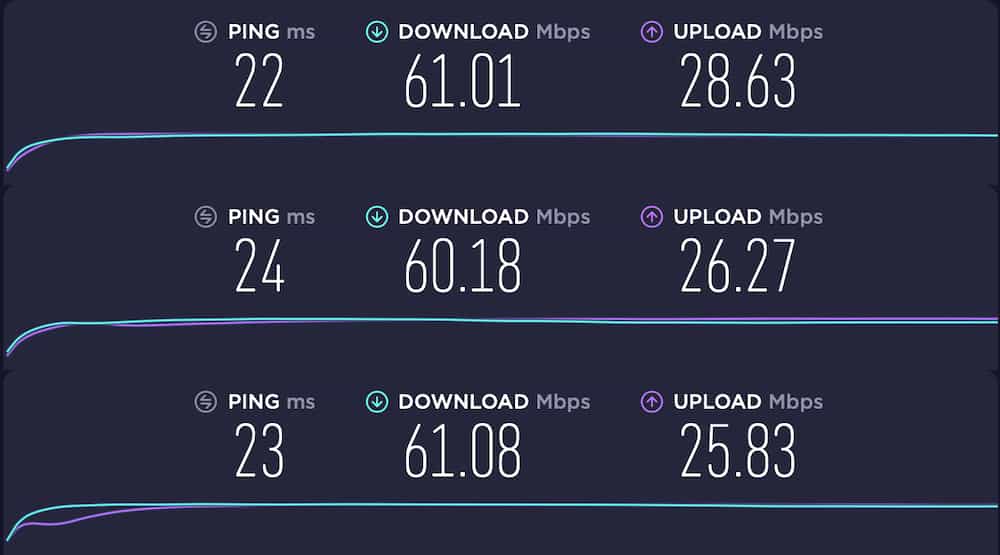
Tested on a 60Mbps (Download) and 30Mbps (Upload) network
Server: U.S.A., New York
Average Download Speed: 60.76Mbps
Average Upload Speed: 26.91Mbps
CyberGhost VPN
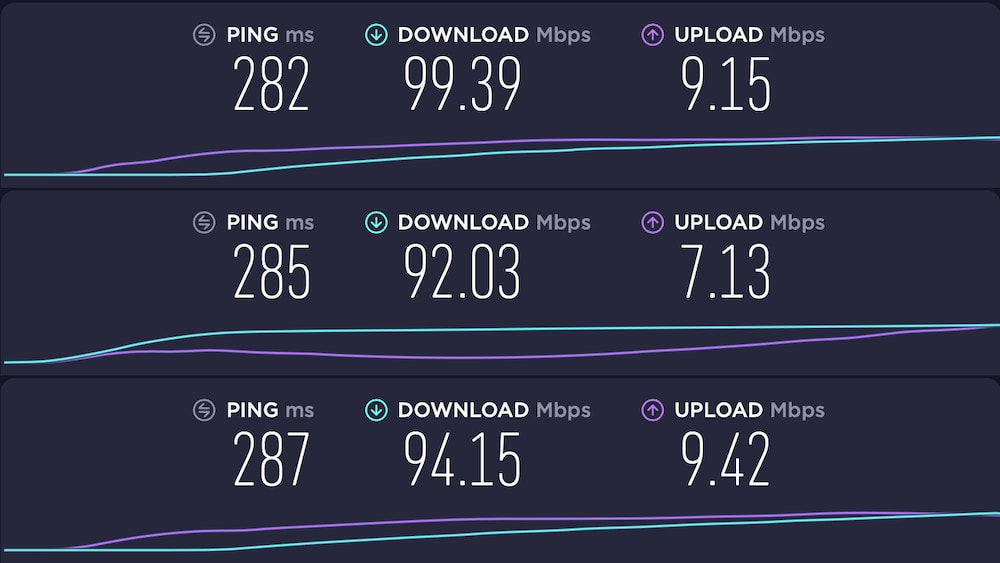
Tested on a 100Mbps (Download) and 30Mbps (Upload) network
Server: U.S.A., New York
Average Download Speed: 95.19Mbps
Average Upload Speed: 8.56Mbps
What we want to look at is the difference between my ISP bandwidth and the speed test results.
With ExpressVPN, there’s barely any speed hit at all. My download speeds are averaging at 60Mbps, which is exactly the bandwidth supplied by my ISP.
I’m getting a small speed hit on upload, but that’s to be expected. ISPs typically outfit their networks with fewer upload channels than download channels.
This is excellent performance.
On CyberGhost VPN’s side, the download performance is also very good. We’re taking a small speed hit, but nothing major.
On the upload side, however, the speed hit is very significant. Again, we’re not expecting upload performance to match download performance, but this is quite the speed hit.
I could see this being a problem with certain network-intensive online games.
Winner: ExpressVPN
ExpressVPN gets the point on speed. Their speed performance is just quantitatively better.
2. User-Friendliness
User-friendliness is more important than ever to commercial VPN providers because VPN users are no longer exclusively tech geeks in search of digital privacy.
A lot of non-technical people also now use VPNs for various reasons.
Both ExpressVPN and CyberGhost VPN provide native client applications on all major platforms. And of course, they both provide unlimited bandwidth.
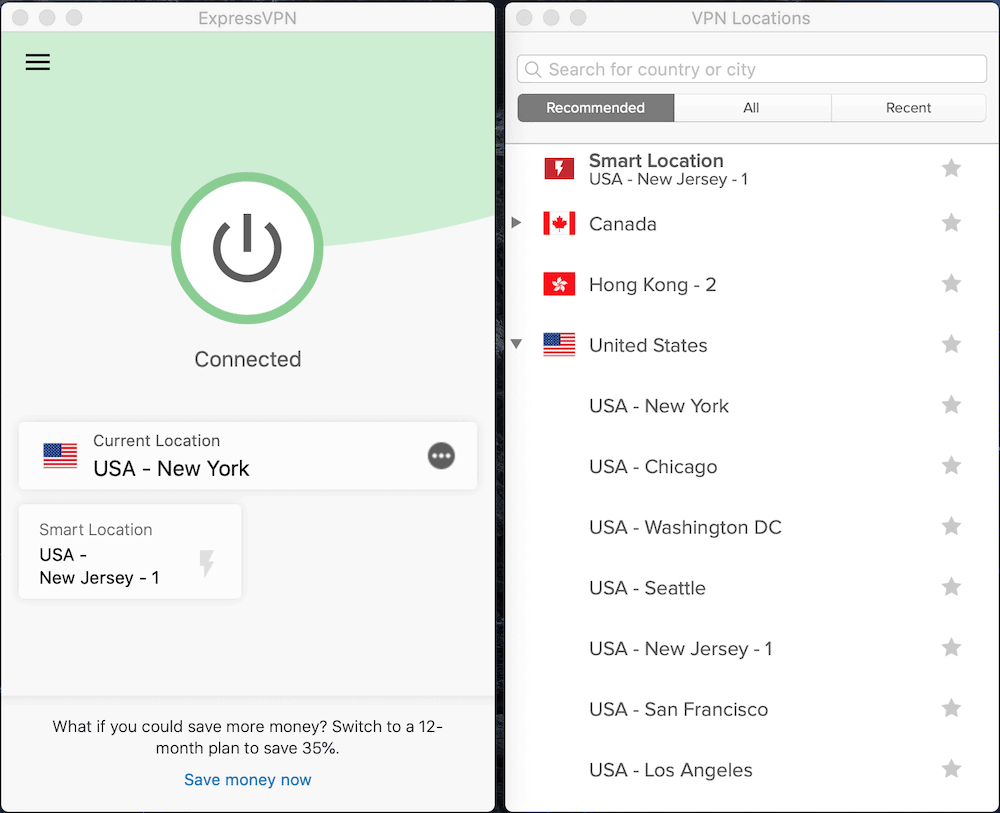
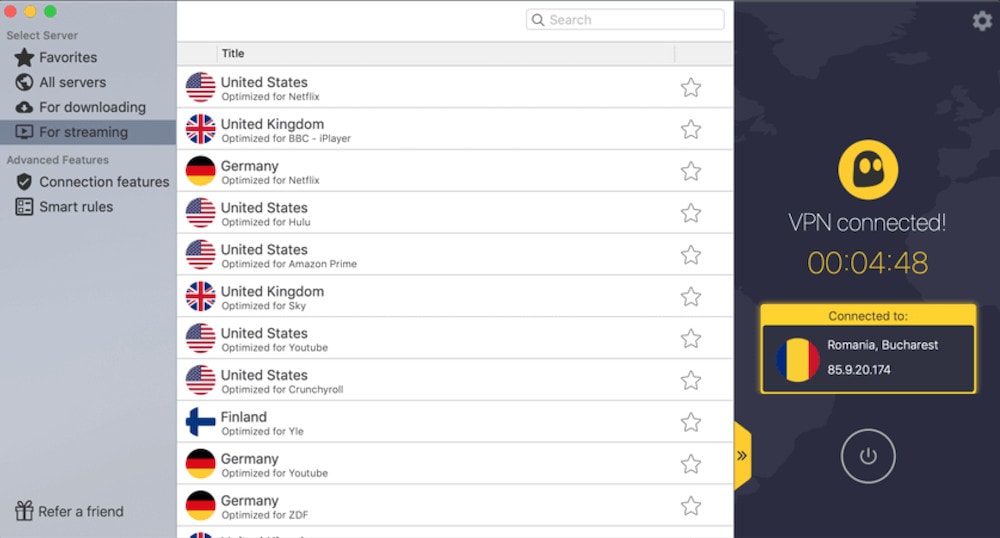
Both providers support:
- Windows
- macOS
- Linux
- iOS
- Android
- FireTV
And they both provide Chrome/Firefox browser extensions.
Both apps include a VPN kill switch and both apps support split-tunnelling, which is more and more popular these days.
Split-tunnelling enables you to selectively route certain traffic through the VPN and other traffic through your ISP connection.
And each provider’s app is well designed, easy to navigate, and clearly laid out. And you can contact their respective customer support department from within both of these apps.
And speaking of customer support, when testing these two VPN service providers, everything just worked. So I had no need to contact them - which is what you generally hope for.
As far as simultaneous connections go, both providers allow up to 6.
Winner: Tie
Their performance is equal on the user-friendliness front. Nothing to set them apart. This one’s a tie.
3. Streaming
Streaming over a secure VPN connection enables you to bypass geo-restrictions and to circumvent ISP throttling, on top of the security benefit you get from the encryption.
And since certain providers, such as Netflix, have started banning VPNs from accessing their content libraries, unblocking Netflix access has become a major concern for VPN providers.
ExpressVPN and CyberGhost VPN both make the claim that they’re streaming-friendly providers and that claim extends to unblocking Netflix.
ExpressVPN and CyberGhost VPN both provide a dedicated page on their respective websites that explain how to unblock Netflix over their networks.
As you can read in my Netflix reviews of ExpressVPN and CyberGhost VPN, they both do what’s written on the box and they both do it extremely well.
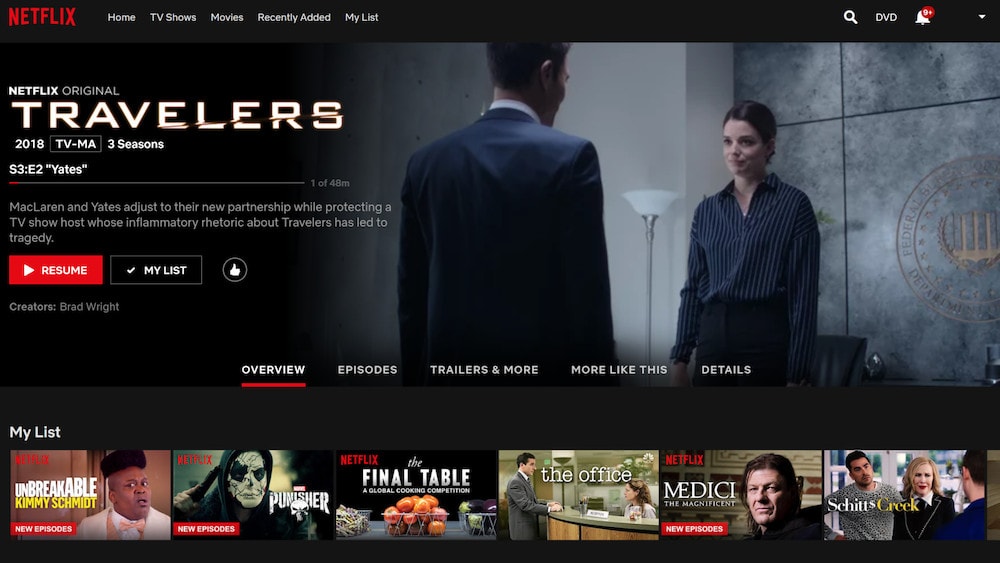
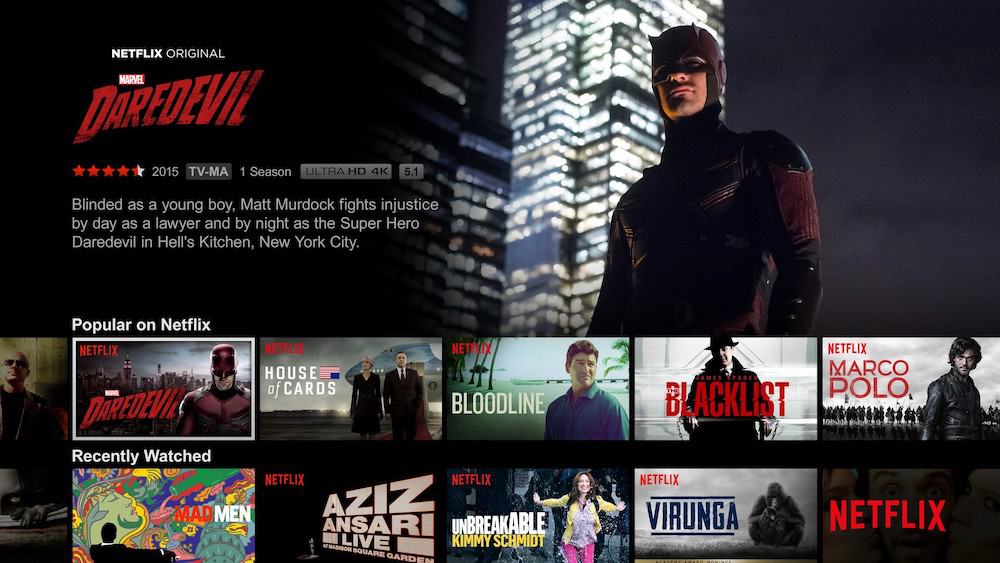
Winner: Tie
It’s going to be another tie here, folks. The functionality is the same. As is the success rate. Good stuff from both providers here.
4. Security & Encryption
ExpressVPN and CyberGhost VPN both support secure VPN protocols.
ExpressVPN supports:
- IKEv2/IPSec
- OpenVPN
- L2TP/IPSec
- PPTP
CyberGhost VPN supports:
- IKEv2/IPSec
- OpenVPN
- WireGuard
- L2TP/IPSec
Both providers, in line with the industry, support AES-256, the industry-standard cipher that has no known vulnerabilities.
CyberGhost, however, also supports WireGuard, which uses more modern and perhaps more secure ciphers. These are:
- ChaCha20
- Curve25519
- BLAKE2s
- SipHash24
- HKDF
But both providers also support weak and obsolete VPN protocols, such as L2TP/IPSec and, in ExpressVPN’s case, PPTP.
This is not a good practice, in my opinion. Supporting weak protocols can put less technical users at risk. Weak and obsolete protocols should not be supported by VPN providers.
They should be phased out.
Winner: CyberGhost VPN
We’re going to give the point to CyberGhost here. While they also support weak VPN protocols (L2TP/IPSec), they don’t support as many as ExpressVPN (L2TP/IPSec & PPTP). Also, they deserve the point for supporting the WireGuard protocol, which is arguably the future of VPN protocols.
5. Logs & Privacy
Both ExpressVPN and CyberGhost VPN commit to a strong no-logging policy, on paper. But how do they communicate this in their privacy policies?
Here’s an excerpt of ExpressVPN’s privacy policy:
"ExpressVPN is committed to protecting your privacy. We want you to understand what information we collect, what we don’t collect, and how we collect, use, and store information. We do not collect logs of your activity, including no logging of browsing history, traffic destination, data content, or DNS queries. We also never store connection logs, meaning no logs of your IP address, your outgoing VPN IP address, connection timestamp, or session duration”.
It is clear, contains no Legalese, and can be understood by non-techies.
Her’s an excerpt of CyberGhost VPN’s privacy policy:
"CyberGhost has an unequivocal company policy: the strongest observance of data protection and uncompromising protection of user privacy. When using the CyberGhost VPN, we have no idea about your traffic data such as browsing history, traffic destination, data content, and search preferences. These are NOT monitored, recorded, logged or stored by us. More than this, when using the CyberGhost VPN, we are NOT storing connection logs, meaning that we DON'T have any logs tied to your IP address, connection timestamp or session duration. We do NOT have any access to the credit card information you submitted to our payment processor and we DO NOT connect your payment or information with any kind of online activity done by you inside the CyberGhost VPN tunnel. We provide a service that protects privacy. We take your data very seriously and we put a lot of effort to ensure safe storage and protection of your data. We believe you should always know what data we collect and how we use it. This document (Privacy Policy) defines and informs you of any and all of the instances in which your data and information is collected and used".
This is good stuff on behalf of both providers.
However, with CyberGhost’s privacy policy, I just gave you the best part - and the only part which will really be meaningful to the privacy-minded. The rest of it reads like a template privacy policy you could download from the Web.
ExpressVPN’s privacy policy is more thoughtful and exposes their practices clearly, using easy to understand language and tone.
Also, as we mentioned in the opening paragraphs, CyberGhost VPN has a trust deficit stemming from their parent company’s AdTech & malware spreading past.
I’m pretty sure their malware-spreading activities were not disclosed in their privacy policy. So can we trust them?
Nope.
Winner: ExpressVPN
Privacy policies rely on trust. CyberGhost VPN has a trust deficit. ExpressVPN takes it here. Easily.
6. Pricing
Let’s focus our attention on price now. Here are the different packages, prices, and accepted payment methods for ExpressVPN and CyberGhost VPN:
ExpressVPN
Visit ExpressVPN (SAVE 35%)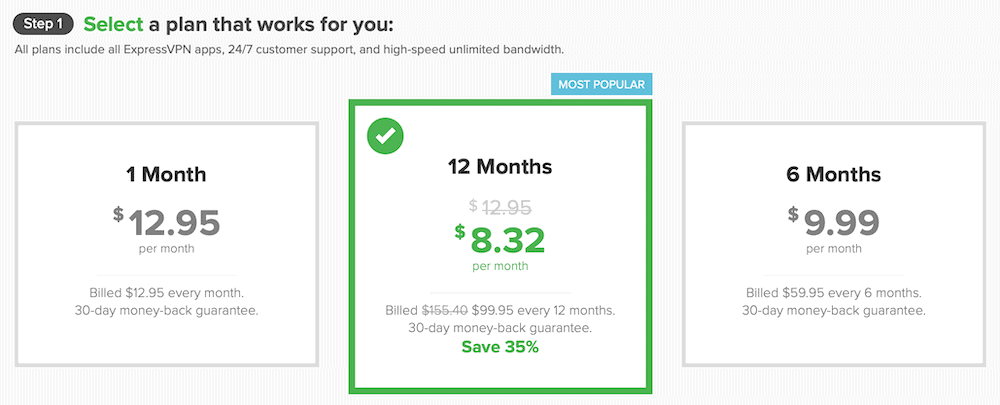
ExpressVPN offer three subscription terms:
- 12.95 USD for one month of service
- 59.95 USD for six months of service (works out to 9.99 USD per month)
- 99.95 USD for one year of service (works out to 8.32 USD per month)
Payment Methods
- Credit card
- PayPal
- Bitcoin
- UnionPay
- AliPay
- Interac
CyberGhost VPN
Visit CyberGhost VPN (SAVE 79%)
CyberGhost VPN also offers three subscription terms:
- 12.99 USD for one month of service
- 47.94 USD for six months of service (works out to 7.99 USD per month)
- 49.50 USD for 18 months of service (works out to 2.75 USD per month)
Payment Methods
- Credit card
- PayPal
- Bitcoin
CyberGhost VPN is cheaper pretty much across the board.
They support fewer payment options than ExpressVPN, but they still manage to tick all the essential boxes by supporting credit cards, PayPal and Bitcoin - the latter enabling anonymous payments (with a little work).
ExpressVPN is more expensive - though they remain the better VPN provider, in my opinion.
Winner: CyberGhost VPN
I’m giving the point to CyberGhost VPN, but only because this is the Pricing category and they offer lower prices than Express. Logic forced me to give them this point.
But make no mistake, I would recommend ExpressVPN over CyberGhost VPN any day.
7. Torrenting
This one may be a tie as well…
Both providers support torrenting extremely well.
ExpressVPN doesn’t really mention torrenting on their website, but as I wrote in my torrenting review of ExpressVPN, it just works on all servers.
CyberGhost VPN takes a slightly different approach by offering a subset of dedicated P2P VPN servers on their network. These servers are grouped within the CyberGhost app.
And again, as written in my torrenting review of CyberGhost VPN, it just worked really well.
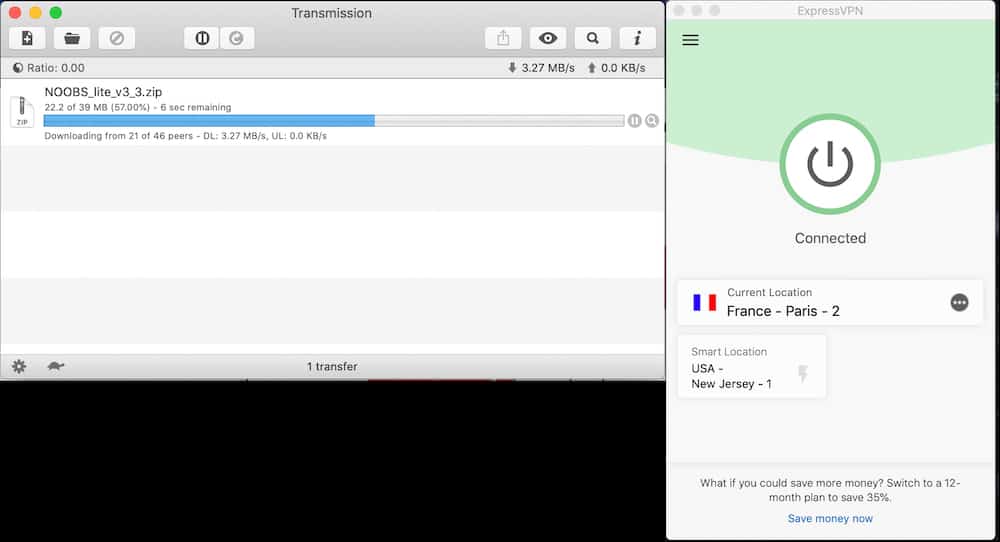
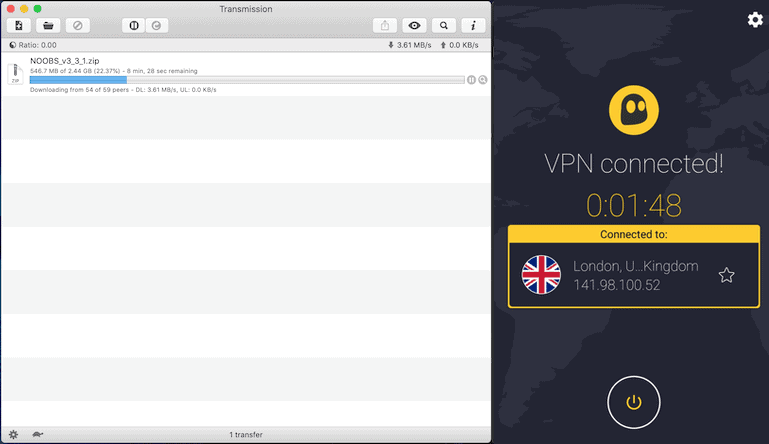
For more information, be sure to check out our torrenting reviews of ExpressVPN and CyberGhost VPN.
Winner: Tie
Another tie. There are quite simply no significant differences in terms of torrenting between these two VPN providers. And both performed very well.
8. Other Features
Not much to say in this category:
ExpressVPN operates diskless servers
CyberGhost VPN has a trust deficit.
Outstanding Features
ExpressVPN
- Diskless Servers: ExpressVPN’s servers run from volatile memory (RAM), rather than from disk. Hence the expression “diskless servers”. If ever a vulnerability is discovered on a server running from RAM, rebooting the server is all that’s required to restore it to its original (pre-vulnerability) state. This is an excellent security feature and we hope to see more commercial VPN providers following ExpressVPN’s example here.
CyberGhost VPN
- While this VS article may end up being closer than expected (due to the format, I think) the fact remains that CyberGhost doesn’t have any distinguishing features over ExpressVPN, aside form cost. And when you consider CyberGhost’s trust deficit, which I mentioned a few times throughout this post, they’re just impossible to recommend. I would much rather pay a few bucks more a month for a VPN provider I can trust - in this case, that’s ExpressVPN
Winner: ExpressVPN
ExpressVPN takes to point both on trustworthiness and on features.
Conclusion: ExpressVPN vs CyberGhost VPN
And the winner is…
We had eight categories:
The winner in each category gets one point. And both providers get a point in the event of a tie.
The breakdown is as follows:
- Speed – (ExpressVPN)
- User-Friendliness – (Tie)
- Streaming – (Tie)
- Security & Encryption – (CyberGhost)
- Logs and Privacy – (ExpressVPN)
- Pricing – (CyberGhost)
- Torrenting – (Tie)
- Other Features – (ExpressVPN)
So that’s 6 points for ExpressVPN and 5 points for CyberGhost VPN.
I didn’t think it would be that close, and I don’t feel this result reflects reality. ExpressVPN is the better provider, and they did win.
But the reality is that CyberGhost VPN should not be considered as a close runner-up, just below ExpressVPN. Their trust deficit is a problem and it should be a problem.
The bottom line is: we can confidently recommend ExpressVPN, not CyberGhost VPN.
CyberGhost VPN
Go With CyberGhost VPN if:
- You can live with a questionable VPN provider.
- You want to pay less than ExpressVPN users pay.
- Your main reason for using a VPN is for streaming or torrenting.
ExpressVPN
Go With ExpressVPN if:
- You want to connect to diskless VPN servers.
- You are disposed to pay a bit more for trustworthiness.
- You want to make sure you choose a VPN provider that doesn’t keep any connection logs.
For more information on these two VPN providers, check out our ExpressVPN review and our CyberGhost VPN review.
VPN > VPN Comparisons > VPN Services
ExpressVPN Vs. CyberGhost VPN - In-Depth Comparison
By Marc Dahan
Last updated: August 21, 2020




